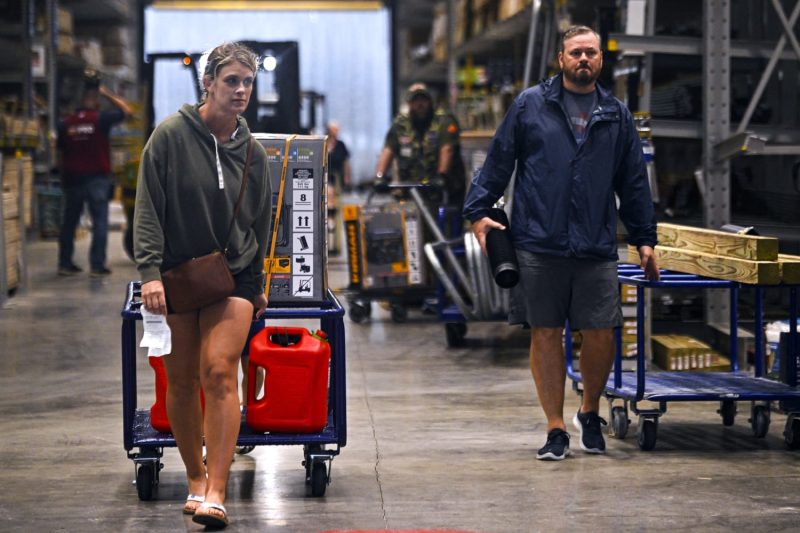In a recent joint announcement, the Department of Justice (DOJ) and the Federal Trade Commission (FTC) have issued a warning to consumers about possible fraud and price gouging risks in the aftermath of Hurricane Milton. As natural disasters can often bring out the best in people, unfortunately, they can also sometimes bring out the worst in some individuals and businesses who seek to take advantage of vulnerable populations for their own gain. Here’s what consumers need to be aware of to protect themselves in these challenging times.
One of the key points emphasized by the DOJ and FTC is the importance of being cautious when dealing with unfamiliar businesses or individuals offering repair and clean-up services in the wake of a disaster. Scammers may try to exploit the chaos and urgency that follows a natural disaster by offering services that are subpar or even fraudulent. It is essential for consumers to thoroughly research and vet any contractor or service provider before agreeing to work with them. This includes checking for licenses, certifications, and reviews from other customers.
Additionally, consumers should be wary of price gouging, which occurs when businesses significantly increase the prices of essential goods and services following a disaster. Price gouging is not only unethical but in many states, it is also illegal. The DOJ and FTC advise consumers to report any instances of suspected price gouging to the authorities so that appropriate action can be taken.
Another important piece of advice from the DOJ and FTC is for consumers to be mindful of unsolicited emails, phone calls, or messages from unfamiliar sources. Scammers may try to trick individuals into revealing personal information or making payments for fake charities or services. It is best to independently verify the legitimacy of any requests for donations or assistance before taking any action.
The DOJ and FTC also remind consumers to be cautious when making donations to charitable organizations in the aftermath of a disaster. It is essential to donate to reputable and established charities with a proven track record of providing assistance to those in need. Consumers can verify the legitimacy of a charity by checking websites like Charity Navigator or GuideStar.
Lastly, the DOJ and FTC stress the importance of being vigilant and proactive in protecting oneself from potential scams and fraudulent activities. By staying informed, cautious, and proactive, consumers can reduce their risk of falling victim to scams and price gouging in the aftermath of Hurricane Milton or any other disaster.
In conclusion, while natural disasters can bring out the best in communities, they can also expose vulnerabilities that scammers may try to exploit. By heeding the warnings and advice of the DOJ and FTC, consumers can protect themselves from fraud and price gouging risks in times of crisis. Stay informed, be cautious, and report any suspicious activities to the authorities to help keep yourself and others safe in the aftermath of a disaster.
